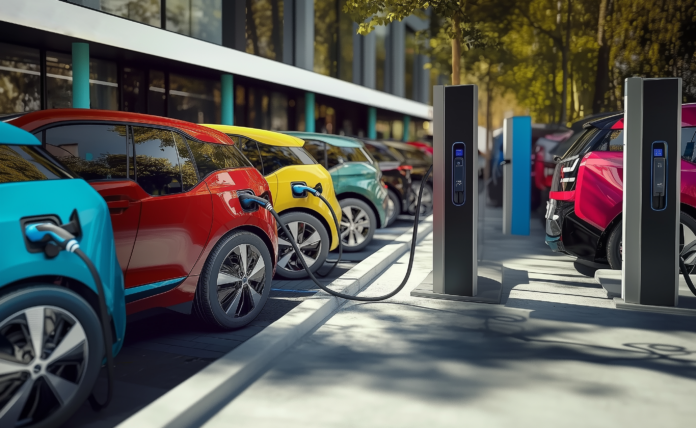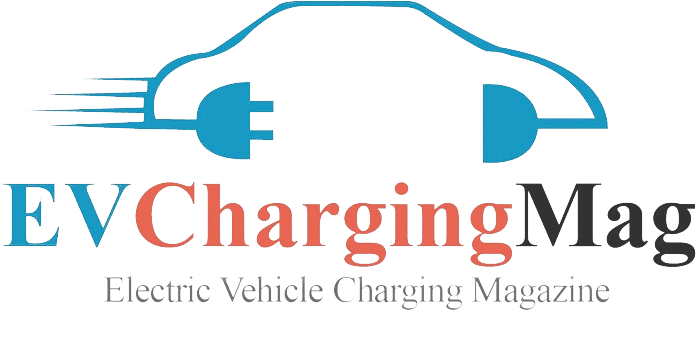Top 7 Q&As from the EV Charging Summit & Expo
By Ryan Sodamann, Vice President of Solutions Operations, Faith Technologies Incorporated (FTI)
The March 25-27 EV Charging Summit & Expo ─ North America’s largest infrastructure event for transportation electrification ─ was exciting, educational and eye-opening.
While there was a lot to learn, it was clear that attendees had just as many questions as answers about EV charging. I spent time exploring the floor and joining conversations, including my panel on choosing the right service plan for EV charging infrastructure.
Installing chargers is just the beginning. Real long-term success requires a comprehensive service plan that includes proper management and preventative/reactive maintenance.
During the summit, I had the chance to explore a range of topics, from design strategies to product-specific challenges. These insights from my panel and chatting with other experts are key to building service plans that will keep your EV chargers running long after the point of sale.
Q: “What can I do to maximize EV charging station uptime?”
A: This was the most asked question of the summit. Adding to “range anxiety” that EV drivers already feel, they also have trust issues when it comes to charging stations. Of course, there are “good/better/best” approaches to EV charging services, yet here are several best practices to help ensure uptime:
- Preventative maintenance that follows manufacturer recommendations.
- Predictive maintenance that uses data analysis to predict failures.
- Prescriptive maintenance based on analysis and machine learning spurs corrective actions.
- The right Network Operations Center (NOC) is the hub of these three actions. It monitors charging station performance in real-time to allow for quick responses to issues.
Q: “EV charger dependability is a concern. What steps can I take to ensure my EV chargers remain reliable?”
A: With many new players in the EV charging space, tackling reliability concerns requires a multi-level approach. Here’s what I recommend to keep your EV charging infrastructure running smoothly for years to come:
- Choose a trusted service partner.
- Create and implement a comprehensive maintenance plan.
- Implement regular visual inspections.
- Use quality parts and components.
- Conduct ongoing training and support for technicians and support staff.
Q: “What monitoring methods should I use to detect and address EV charging infrastructure issues promptly?”
A: Mentioned earlier, a NOC continuously monitors the performance of charging stations and detects issues as they occur, 24/7/365. Remote diagnostics troubleshoot and resolve issues without onsite visits 98% of the time. Automated alerts flag issues early for fast responses.
Q: “How does the right service plan reduce my Total Cost of Ownership (TCO)?”
A: Efficient and reliable charger operation over their lifespan is key. With the proper service/maintenance strategy, potential issues are identified and addressed before they lead to costly repairs or downtime. This extends equipment life, minimizes operational disruptions and reduces overall operation costs.
Q: “What is the #1 fail issue with EV charging infrastructure?”
A: Remember the EV driver anxiety mentioned earlier? Well, here’s why: one in five public EV charging attempts ends in failure (according to the J.D. Power U.S. Electric Vehicle Experience Public Charging StudySM).
Network connectivity is the most common issue. Authentication fails because charging stations are unable to connect to the network, often due to poor cellular service at the chargers’ location. Unreliable cellular networks result in notifications that a charger is out of service, cannot accept payment or is damaged.
Being able to restore EV charging infrastructure quickly is vital, so having a solid NOC and service strategy in place is critical.
Q: “For EV charging infrastructure issues that require onsite work, what is the average amount of time from alert to arrival? What is total dispatch time and completion time?”
A: While most service level agreements (SLAs) specify less than 24 hours, response time can be as quick as four hours, with top-end service providers arriving within one hour of alert. Of course, serious issues ─ when parts need to be ordered, or the issue requires specific expertise ─ response times rise significantly.
Under one-hour onsite troubleshooting could involve software glitches or performing a reset. However, a world-class NOC can handle issues remotely, fixing issues nearly instantly and minimizing the number of physical dispatches.
Q: “How do third-party validation services ensure the reliability, safety and compliance of EV charging stations?”
A: Of course, everyone wants smooth EV charger installation and operation. But just as important is long-term operational efficiency and customer satisfaction. Commissioning partners provide expertise, mitigate risks, optimize performance and build trust. Here are the key aspects of third-party validation services:
- Compliance verification per manufacturer specifications.
- Quality assurance and performance testing.
- Independent reporting, including documentation for insurance purposes.
- Troubleshooting to identify potential issues.
- Data monitoring services to remotely track performance.
As the industry evolves, partnering with service providers that offer long-term maintenance and support will be key to ensuring reliability. If you’re exploring ways to streamline your rollout and secure the right service plan, I’d be glad to share more insights.
Bio:
Ryan Sodamann, Vice President of Solutions Operations at Faith Technologies Inc. (FTI) is a driving force behind innovative EV charging solutions. With extensive expertise in service level agreements, nationwide distributive services, and Network Operations Center (NOC) management, Ryan optimizes uptime and efficiency for EV infrastructure. His strategic leadership in asset management and preventative/reactive maintenance ensures seamless operations, making him a trusted authority in EV servicing.


